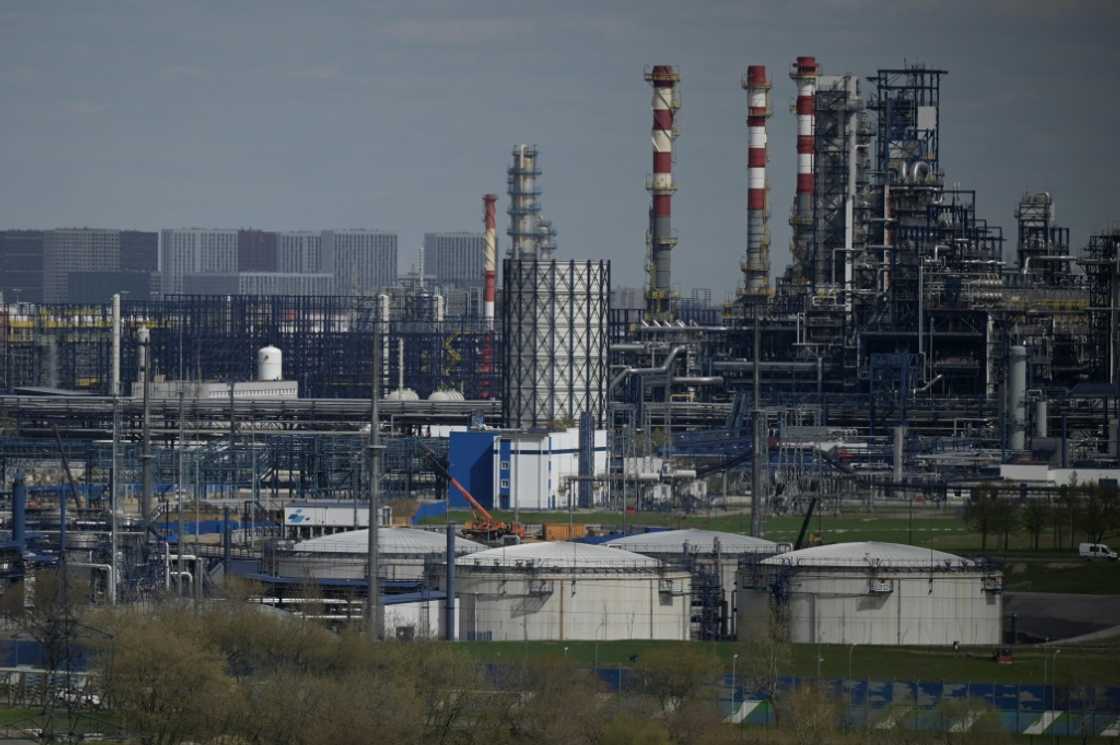Russian oil exports hit near three-year high in March: IEA

Source: AFP
PAY ATTENTION: Enjoy reading our stories? Join YEN.com.gh's Telegram channel for more!
Russian oil exports jumped to their highest level in almost three years in March despite Western sanctions, but revenues were down sharply from last year, the International Energy Agency said Friday.
The West has imposed a slew of sanctions against Russia since Moscow invaded Ukraine in February 2022, including price caps on its oil exports and EU embargoes.
But the IEA said in its monthly oil market report that total shipments from Russia rose by 600,000 barrels per day to 8.1 million bpd last month, the highest level since April 2020.
While Russia's oil revenues rebounded by $1 billion to reach $12.7 billion, they were still down 43 percent compared to a year ago.
The Paris-based agency said much of the increase was due to a rise in exports of oil products, which returned to pre-Covid levels as they climbed by 450,000 bpd to 3.1 million bpd.
The IEA said oil product shipments destined for the EU almost doubled between February and March to 300,000 bpd, but they were down by almost 1.5 million compared with pre-war levels.
PAY ATTENTION: Сheck out news that is picked exactly for YOU ➡️ click on “Recommended for you” and enjoy!
Diesel shipments to Turkey, which has refused to join Western sanctions on Moscow, reached their highest level since 2018.
Moscow's crude exports rose by 100,000 bpd to five million bpd, with India replacing China as the main destination for Russian shipment in Asia in March.
'Consumers under siege'
The EU imposed an embargo on seaborne oil deliveries from Russia in December, along with a price cap of $60 per barrel for exports around the world that was agreed with Group of Seven nations and Australia.
The EU added a ban on Russian petroleum products in February and agreed with the G7 on price ceilings of $100 per barrel for more expensive fuel like diesel and $45 on lower-quality products such as fuel oil.
The oil measures aim to strip Russia, one of the world's top energy producers, of a major source of revenue for its war effort.
Russia retaliated against the Western sanctions by slashing its production by 500,000 bpd, and its partners at the OPEC+ oil cartel shocked the markets by announcing their own output cuts earlier this month.
Russia, however, missed its target in March as production fell by 290,000 bpd, according to the IEA.
The agency said the cuts by several OPEC+ members, led by powerhouse Saudi Arabia, risk sending prices of crude and oil products higher.
"Consumers currently under siege from inflation will suffer even more from higher prices, especially in emerging and developing economies," the said the agency, which advises developed nations.
The cuts total 1.7 million bpd and come on top of a reduction of two million bpd that the group agreed in November.
The move risks "aggravating an expected oil supply deficit" in the second half of the year, the IEA said.
Oil prices have risen since the announcement. Crude prices had been falling in recent months after soaring following Russia's invasion of Ukraine last year.
New feature: Сheck out news that is picked for YOU ➡️ click on “Recommended for you” and enjoy!
Source: AFP



